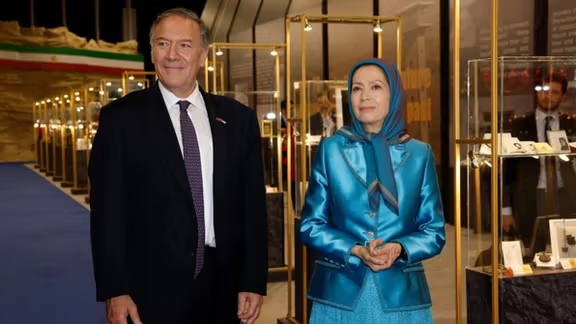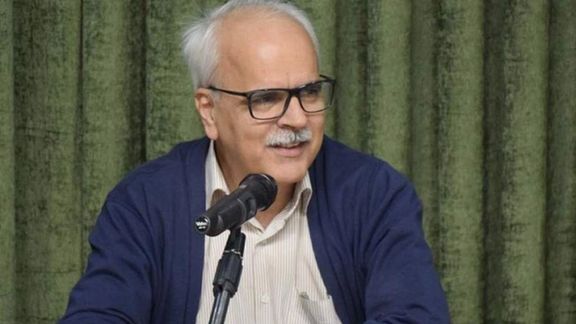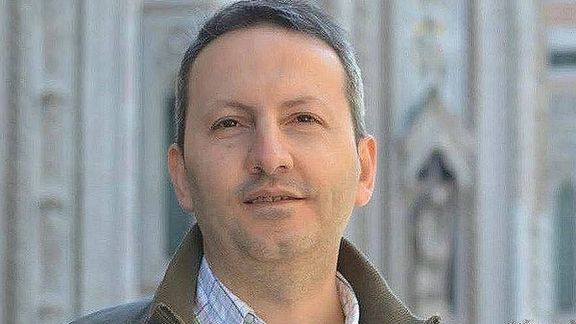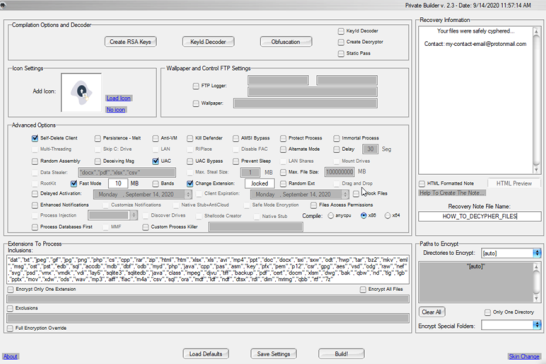Pompeo Pays Controversial Visit To Iranian MEK Group In Albania

Mike Pompeo, United States Secretary of State under President Donald Trump, has visited the camp in Albania of the Iranian Mujahedin-e Khalq (MEK).

Mike Pompeo, United States Secretary of State under President Donald Trump, has visited the camp in Albania of the Iranian Mujahedin-e Khalq (MEK).
“In the end the Iranian people will have a secular, democratic, non-nuclear republic, I pray that this day will come soon,” Pompeo said during his controversial visit Monday. “I am committed to this cause; I know you all are too.” Pompeo met with the MEK leader Maryam Rajavi, describing her as “president-elect” of Iran.
Some Iranian dissidents have criticized Pompeo’s visit to the MEK center in Albania, as they regard the organization as non-democratic.
Pompeo, secretary of state when the US in 2018 left the 2015 Iran nuclear deal and imposed ‘maximum pressure’ sanctions, Monday called Iranian president Ebrahim Raisi a “butcher” who had “orchestrated” prison executions in 1988. Pompeo claimed 30,000 prisoners had been executed, the majority of whom “were the MEK.”
The Islamic Republic holds the MEK responsible for bombings in Iran in 1980s and for its alliance with Saddam Hussein until his overthrow in 2003. The United States relocated the opposition group from Iraq to Albania in 2013 as pro-Tehran Shiite groups were attacking the MEK and Kurds were demanding to hold the organization accountable for siding with Saddam.
Pompeo said that current “unrest in several Iranian cities, triggered by a sudden jump in prices,” showed Raisi had “failed” as president. “His mission is clear,” Pompeo said. “Inflict pain. Frighten, continue to loot and plunder.”

Prominent Iranian sociologist and former political prisoner Saeed Madani has been arrested on charges of "suspicious foreign connections" and “measures against the security” of the country.
Iran’s semi-official Mehr news agency reported Monday that he was arrested and sent to prison for meeting with suspicious foreign agents and conveying their intentions and operational strategies to some convicted agents inside the country.
The report did not provide any source or further details about the case against the scholar.
In January, he wrote to Chief Justice Gholamhossein Mohseni-Ejei after being denied exit from Iran to begin a one-year research post at Yale University.
He said he was stopped at an airport gate in December as he was about to board, adding that a Revolutionary Guards (IRGC) intelligence officer told him, without an explanation, that he was barred from leaving the country and kept Madani's passport.
Madani − whose research interests include poverty, drug addiction, child abuse, and prostitution − belongs to the banned Nationalist-Religious Alliance, a group of small non-violent religious opposition groups that favor political reform and welfare economics. He has been sentenced and imprisoned several times for membership in the group and for "propaganda against the state." In 2016, he was exiled to the southern port city of Bandar Abbas after four years of an eight-year prison sentence served at Evin prison, Tehran.

The United Nations human rights office urged Iran Tuesday to halt the execution of Swedish-Iranian academic Ahmadreza Djalali and rescind his death sentence.
The semi-official ISNA news agency had reported that Djalali (Jalali), a specialist in emergency medicine, would be executed by May 21 following his conviction for espionage in 2017. Human rights groups said his trial – by a Revolutionary Court, following his arrest in 2016 while visiting Iran on an invitation from a university – was unfair.
On Monday, Iranian Foreign Ministry Spokesman Saeed Khatibzadeh told a press conference that a request to postpone Djalali’s execution was under consideration and that the judiciary was “following up on this." Enrique Mora, the senior European Union official coordinating talks to revive the 2015 Iran nuclear agreement, said he had raised the case on his Tehran visit last week, requesting a stay of execution and Djalali’s release on humanitarian grounds.
There have been reports in recent weeks and months of Iran being in contact with both the United States and European states over potential prisoner swaps. Nazanin Zeghari-Ratcliffe, a British-Iranian citizen, was released last month after the British agreed to pay a long-standing £400-million (around $500 million) debt to Iran.
There has been speculation that the announcement of Djalali’s execution was intended to influence the trial in Sweden of Hamid Nouri, a former Iranian official, over his alleged role in a wave of prison executions in Iran in 1988. Tehran has said Djalali’s arrest and detention, a rare example of universal jurisdiction, are illegal.

Iran's state television on Tuesday showed a 3-minute report on the recent arrest of two French citizens, saying they were spies who had tried to stir up unrest.
Iran's intelligence ministry had said on May 11 it had arrested two Europeans for allegedly fomenting "insecurity" in Iran, but had not revealed their nationalities.
The arrest took place as the European Union chief nuclear negotiator Enrique Mora was visiting Tehran to revive the Vienna negotiations stalled since mid-March. Earlier Iran had threatened to execute a Sweidsh Iranian dual national arrested since 2016 and condemned to death on unproven charges of espionage for Israel.
Security detainees in Iran do not receive fair and open trials, with defense attorneys chosen by the government, and often left without pertinent information relating to their clients’cases.
France has condemned their detention as baseless and demanded the immediate release of the French couple, in an incident likely to complicate ties between Iran and Europe as the nuclear talks remain dormant. France, along with Germanu and the United Kingdom are participants in the nuclear talks.
On Tuesday, state television named the two as Cecile Kohler, 37, and her partner Jacques Paris, 69, adding that "the two spies intended to foment unrest in Iran by organising trade union protests". Iran's judiciary has yet to comment on the matter.
In Paris, there was no immediate response from the French Foreign Ministry to a request for comment on Iranian television's assertions, Reuters said.
In recent months, Iranian teachers across the country have staged protests demanding better wages and working conditions, as 40-percent inflation. Dozens of them have been arrested.
"They traveled to Iran as tourists ... But they took part in anti-government protests and met members of the so-called Teachers' Association," it said, showing Kohler and Paris apparently talking in a meeting with what it said were protesting Iranian teachers. An audio recording was released that seemed to be bits and pieces from undetermined conversation.
The TV footage showed what it said was their arrival at Tehran's International Imam Khomeini Airport on April 28 with Turkish Airlines from Turkey, as well as their arrest on their way to the airport on May 7.
Christophe Lalande, federal secretary of France's FNEC FP-FO education union, told Reuters on May 12 he suspected that one of his staffers and her husband were missing on a holiday in Iran.
Two other French nationals are held in Iran on national security charges their lawyers say are politically motivated.
Apparently, Mora intended to discuss the issue of foreigners held by Iran during his visit last week, but he did not mention the topic after his return.
Rights groups have accused Iran of trying to extract concessions from other countries through such arrests. Iran has repeatedly dismissed the chargé, but recently released two British Iranian detainees after London paid a $520million old debt.
Western powers have long demanded that Tehran free their citizens, who they say are political prisoners. The United States has acknowledged that the issue of de-facto hostages held by Iran has been discussed on the sidelines of the nuclear negotiations.

Former President Mahmoud Ahmadinejad has been distancing himself from President Ebrahim Raisi’s policies as his economic failures become obvious and dangerous.
Ahmadinejad has been recently criticizing Raisi’s economic and foreign policies. He has particularly lashed out at Raisi’s decision to eliminate food subsidies which has brought thousands of Iranians into the streets in many cities in several provinces.
Meanwhile, media and pundits in Tehran have noted that many of Raisi’s ministers including his ministers of labor, agriculture, economy and industry, and housing as well as his Vice Presidents for planning and budget and Vice President for executive affairs were officials in Ahmadinejad’s government or members of the ultraconservative Paydari Party, representing people associated with the former president.
During the past nine months one of the recurrent criticisms of the Raisi was that he is using Ahmadinejsd’s men in his economic team that is believed to be responsible for the failure of his declared policies about the economy, housing and employment.
According to moderate news website, Rouydad24, Ahmadinejad has been more visibly active after Raisi took office last August. He has been travelling around Iranian provinces, meeting with relatively large groups of people and many Iranians take their grievances to Ahmadinejad’s doorstep at Narmak neighbourhood in eastern Tehran.
During this period Ahmadinejad has also traveled abroad paying eye-catching visits to Turkey and the United Arab Emirates where he was welcomed by groups of Iranian expats and foreign-based Persian-speaking media. He has also continued writing long letters to political and religious dignitaries all over the world. In one of his latest letters, he warned Russian President Vladimir Putin that remaining in power for too long will lead to a dictatorship which is not in his or in Russia’s interest.
Ahmadinejad’s criticism of Raisi’s policies at times looks odd as both political observers and the man in the street notice the resemblance between Ahmadinejad and Raisi’s populist policies. Both talk about social justice and serving the nation in an identical way regardless of how genuine their statements are.
Critics liken Raisi’s policy of throwing money at problems regardless of long-term economic consequences much like Ahmadinejad did during his presidency. The significant difference is that the former president had much higher oil revenues than Raisi. However, Ahmadinejad has charged that the cash subsidy he started to pay to almost all Iranians regardless of their financial footing was about 40 dollars per person per month, while now Raisi cannot afford it because Iran’s currency has fallen 30-fold in the past 15 years.
He has also critiqued the elimination of food subsidies, saying to a crowd in Bushehr southern Iran: “You cannot do whatever you wish only because you are the boss! The nation will not allow anyone to do anything against the people’s will.”
The former President also lashed out at Raisi for “appointing small men to big jobs.” Meanwhile, he has harshly criticised Raisi administration’s policy about Afghanistan and the war in Ukraine. “Who gave you the permission to support Russia’s invasion of Ukraine?” Ahmadinejad asked.

A French-Venezuelan cardiologist has been accused by the US of selling ransomware to cybercriminals, including malicious actors associated with the government of Iran.
The Brooklyn district attorney's office said Monday that Moises Luis Zagala, 55, not only created and sold ransomware products to hackers, but also trained them on how to extort victims, and then boasted about successful attacks by an Iranian state-sponsored hacking group.
In early 2019, Zagala began advertising his new tool on the web as a "Private Ransomware Builder" which he named "Thanos" after the Marvel Comics villain responsible for destroying the half of life in the universe, as well as Thanatos, the personification of death in Greek mythology.
Zagala publicly bragged about a news story about an Iranian state-sponsored hacking group’s use of Thanos to commit ransomware attacks on Israeli companies.
The Islamic Republic is very active in various malign cyber activities and is also providing cyber technology to its proxies, including the Lebanese Hezbollah, to build their own cyber units.
The National Interest reported in mid-April that Iran has helped Hezbollah become “the most sophisticated and influential Middle Eastern terrorist organization in cyberspace after the collapse of the Islamic State caliphate”.
Earlier in April, Meta, formerly the Facebook company, removed two Iranian cyberespionage groups that were targeting academics, activists, journalists and other victims to collect intelligence, manipulate them into revealing information, and compromise their devices and accounts.
The groups, possibly sponsored by Revolutionary Guard (IRGC), targeted Iranian diaspora, dissidents and human rights activists from Israel and Iran, Iran-focused academics, politicians in the US, people in the Middle East including the Saudi military, and journalists around the world.